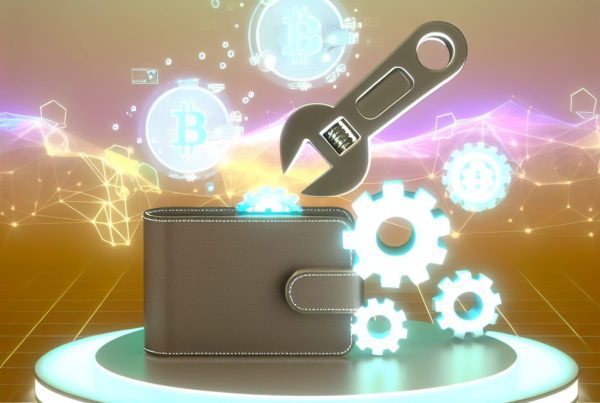Understanding the Role of Miners in the Cryptocurrency Industry
The cryptocurrency industry has revolutionized the way we perceive and interact with money. At the heart of this digital currency ecosystem lies a group of individuals and entities known as miners. These miners play a crucial role in maintaining the integrity and functionality of various blockchain networks. This article delves into the multifaceted role of miners, their processes, challenges, and the broader implications of their work in the cryptocurrency landscape.
What Are Miners?
Miners are individuals or organizations that use computational power to validate transactions on a blockchain network. They are essential for the operation of cryptocurrencies like Bitcoin, Ethereum, and many others. By solving complex mathematical problems, miners ensure that transactions are legitimate and that the blockchain remains secure and immutable.
The Mining Process
The mining process involves several key steps:
- Transaction Verification: Miners collect and verify transactions from the network. Each transaction is grouped into a block.
- Solving Cryptographic Puzzles: Miners compete to solve a cryptographic puzzle associated with the block. This process is known as proof of work.
- Block Addition: The first miner to solve the puzzle broadcasts the solution to the network, and if verified, the block is added to the blockchain.
- Reward Distribution: The successful miner receives a reward, typically in the form of newly minted cryptocurrency and transaction fees.
The Importance of Miners
Miners serve several critical functions within the cryptocurrency ecosystem:
- Security: By validating transactions and adding them to the blockchain, miners help secure the network against fraud and double-spending.
- Decentralization: Mining promotes decentralization, as it allows anyone with the necessary hardware to participate in the network, reducing the risk of central control.
- Transaction Processing: Miners facilitate the processing of transactions, ensuring that they are confirmed and added to the blockchain in a timely manner.
Types of Mining
There are several types of mining methods employed in the cryptocurrency industry:
1. Proof of Work (PoW)
Proof of Work is the original consensus mechanism used by Bitcoin and many other cryptocurrencies. Miners compete to solve complex mathematical problems, and the first to solve it gets to add the block to the blockchain. This method requires significant computational power and energy consumption.

2. Proof of Stake (PoS)
In contrast to PoW, Proof of Stake allows miners (or validators) to create new blocks based on the number of coins they hold and are willing to “stake” as collateral. This method is more energy-efficient and is used by cryptocurrencies like Ethereum 2.0.
3. Delegated Proof of Stake (DPoS)
DPoS is a variation of PoS where stakeholders elect a small number of delegates to validate transactions and create new blocks. This method aims to increase efficiency and reduce the centralization of mining power.
Challenges Faced by Miners
While mining is a lucrative endeavor, it comes with its own set of challenges:
- High Energy Costs: Mining, especially PoW, requires substantial energy, leading to high operational costs.
- Hardware Requirements: Successful mining often necessitates expensive and specialized hardware, making it less accessible for average users.
- Regulatory Issues: Miners face regulatory scrutiny in various jurisdictions, which can impact their operations.
- Market Volatility: The profitability of mining is closely tied to cryptocurrency prices, which can be highly volatile.
Real-World Impact of Miners
The role of miners extends beyond just transaction validation; they have significant real-world implications:
1. Economic Contributions
Miners contribute to the economy by creating jobs and stimulating local economies, especially in regions with abundant energy resources. For instance, in regions like Texas, miners have set up operations that not only provide employment but also help stabilize the local energy grid.
2. Environmental Concerns
The energy consumption associated with mining has raised environmental concerns. Some miners are now exploring renewable energy sources to mitigate their carbon footprint. For example, companies like Bitfury are investing in green energy solutions to power their mining operations.
3. Technological Advancements
The competition among miners has led to significant advancements in technology, including more efficient mining hardware and software. This innovation not only benefits miners but also enhances the overall efficiency of blockchain networks.
Future of Mining
The future of mining is likely to be shaped by several trends:
- Transition to PoS: As more cryptocurrencies adopt Proof of Stake, traditional mining may decline, leading to a shift in how transactions are validated.
- Increased Regulation: Governments are likely to impose stricter regulations on mining operations, particularly concerning energy consumption and environmental impact.
- Technological Innovations: Continued advancements in hardware and software will make mining more efficient and accessible.
FAQs About Cryptocurrency Miners
What is the primary role of miners in cryptocurrency?
The primary role of miners is to validate transactions and add them to the blockchain, ensuring the security and integrity of the network.
How do miners earn money?
Miners earn money by receiving rewards for validating transactions, which include newly minted cryptocurrency and transaction fees.
Is mining profitable?
Mining can be profitable, but it depends on various factors such as energy costs, hardware efficiency, and cryptocurrency market prices.
What are the environmental impacts of mining?
Mining, particularly Proof of Work, consumes significant energy, leading to concerns about its environmental impact. Many miners are now seeking renewable energy sources to mitigate this issue.
Can anyone become a miner?
Yes, anyone with the necessary hardware and software can become a miner, although the competitiveness and costs associated with mining can be barriers for some.
Conclusion
Miners are the backbone of the cryptocurrency industry, playing a vital role in transaction validation, network security, and decentralization. As the industry evolves, so too will the methods and technologies used in mining. Understanding the role of miners is essential for anyone looking to navigate the complex world of cryptocurrencies. For the latest news and updates on cryptocurrency, consider visiting Bitrabo. Stay connected with me on social media: X, Instagram, and Threads.
Disclaimer: The information provided in this article is for educational purposes only and should not be considered financial advice. Always conduct your own research before making investment decisions.
The Crypto Watchlist of the Week 🔎
Subscribe to receive expert-curated projects with real potential—plus trends, risks, and insights that matter. Get handpicked crypto projects, deep analysis & market updates delivered to you.


